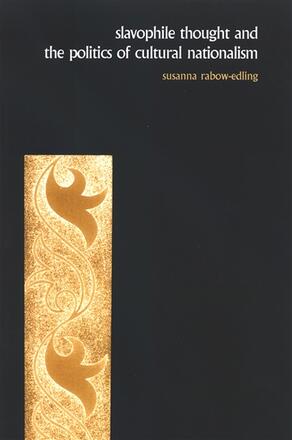
Slavophile Thought and the Politics of Cultural Nationalism
Alternative formats available from:
Examines the origins of Russian nationalism and its relationship to the West.
Description
Susanna Rabow-Edling examines the first theory of the Russian nation, formulated by the Slavophiles in the second quarter of the nineteenth century, and its relationship to the West. Using cultural nationalism as a tool for understanding Slavophile thinking, she argues that a Russian national identity was not shaped in opposition to Europe in order to separate Russia from the West. Rather, it originated as an attempt to counter the feeling of cultural backwardness among Russian intellectuals by making it possible for Russian culture to assume a leading role in the universal progress of humanity. This reinterpretation of Slavophile ideas about the Russian nation offers a more complex image of the role of Europe and the West in shaping a Russian national identity.
Susanna Rabow-Edling is Lecturer at the Department of East European Studies at Uppsala University in Sweden.